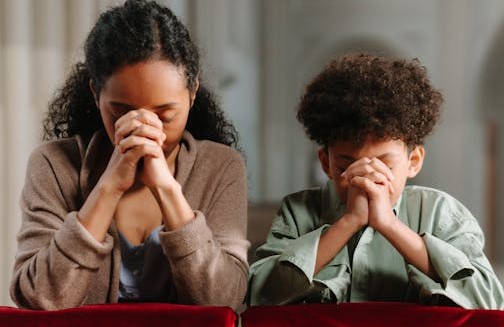by the Rev. Craig Lemming

When a loved one dies, time ceases to be linear. Time morphs, expands, and is flooded with memories as we give thanks and grieve for our dead. In W.H. Auden’s words, we long to “stop all the clocks.” This need to pause time in order to make meaning of our loss is sacred. Grieving requires expansive, unhurried, and unstructured time to metabolize complex, intertwined, and unexpected emotions.

Grief takes the time it takes. We can neither control nor predict how long we will mourn. In a capitalistic society that only gives employees a handful of mere days for bereavement leave, it is almost impossible to stop all the clocks for grief to properly unfold.
When the busyness of paperwork, communications, financial decisions, and nerve-wracking guesswork distract families from processing their feelings of grief, old wounds are reopened, tempers flare, and harmful shadow projections fly. Bickering and bitter resentments exhaust the time, energy, and presence required of grieving well.
In “The Great Litany,” we pray for God to deliver us from dying suddenly and unprepared. Perhaps a faithful response to this is to do what we can in the present to plan for a well-prepared death in the future. Making concrete plans for our death offers our loved ones this pastoral gift of a sacred time to mourn. They need not be burdened with the stress of hurrying to make timely, difficult, and important decisions. All of those essential details can carefully, lovingly, and intentionally be documented for them.

When Jered or I meet with the family of a deceased loved one, there is something profoundly comforting for everyone at the table when all of the funeral details have been clearly arranged and documented. We can set aside that essential paperwork, and actually create a pastoral space for broken hearts to lament, reminisce, and look forward to celebrating the life and legacy of their departed kin. We can lovingly tend to aching souls and disoriented minds by spiritually grounding them in the presence of God’s timeless and steadfast love. Choosing hymns, or selecting the readings, or arguing over whether The Holy Eucharist should be celebrated or not, are details their loved one has already carefully thought through and decided upon.

When the day of the funeral arrives, we can all allow ourselves to be fully immersed in the exquisite language and music of the funeral liturgy, confident that all of the details have been lovingly prepared by the one whose life we are celebrating. As the liturgy unfolds, our minds may wander into cherished or painful memories or imagine our own deaths. A well-planned funeral creates a sacred container for us to be fully liberated from linear time (chronos) so that we can enter fully into God’s time (kairos).
Being well-prepared for our death is good, holy, and joyful work: work that requires a loving community to be fully present and to listen compassionately to one another’s hopes and fears as we discuss the domestic, financial, emotional, and spiritual shifts that take place at the end of life. St. John’s Thursday Book Group recently completed our study and discussions of Frank Ostaseski’s The Five Invitations: Discovering What Death Can Teach Us About Living Fully. A collective desire grew out of our conversations to host a “Funeral Planning Party” for all the members in our faith community on Thursday, May 16, 2024 from 9:30-11:30 a.m. in the Fireside Room. We are very fortunate to have Alice Lightner Johnson and Mary E. Johnson joining us. Alice will speak about her work of “transition management” at Life Shift Services. Mary, who is chaplain emerita of Mayo Clinic, will speak about end of life directives and the grief process. I will walk attendees through filling out St. John’s funeral planning documents that you can keep on file with our church office.

As Sister Monica Joan in the tv series Call the Midwife says: “The liturgy is of comfort to the disarrayed mind. We need not choose our thoughts; the words are aligned like a rope for us to cling to.” We can prepare these comforting ropes together, so that when our day of death comes, our loved ones can stop all the clocks, be present with one another, grieve, give thanks, and hold fast to resurrection hope.

